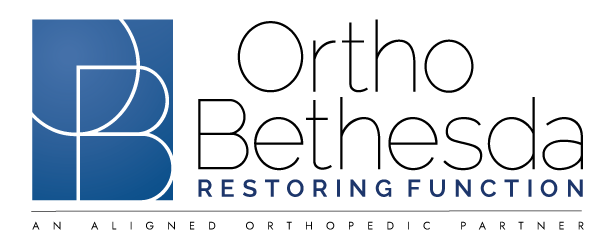Herniated Disc Arlington, Va
When patients tell us that they have a “slipped” or “ruptured” Disc, they could have a herniated Disc, a common pain source in the legs, lower back, neck, or arms. At OrthoBethesda in Arlington, our highly skilled surgeons have the training and years of experience to give each patient the best treatment options for restoring function in the neck and or lower back.
Anatomy
The Discs in your back are pads that seem to be made of rubber. They are located in between the vertebrae of the spinal column. There is a hollow space in your back known as a spinal canal in the middle of the spinal column. The canal holds the spinal cord and nerve roots. The back is able to bend and flex because of the vertebrae that have Discs between them. All shocks to your back are absorbed by the discs.
What Causes a Disc to Herniate?
When the nucleus of a Disc pushes its way through the outer area of the Disc and closer to the spinal canal, it is known as a herniated Disc. This then puts pressure on the nerves of the spine. Nerves found in the spine are susceptible to even slight amounts of stress, resulting in numbness, pain, or weakness in the legs.
OrthoBethesda’s surgical team in Arlington has helped patients recover from herniated Discs for combined forty-plus years; schedule an appointment today for your initial consultation.
The Risk Factors of a Herniated Disc and Preventing Herniated Discs
The water content of Discs in young adults and children is high. The discs become much less flexible as people age because the water content decreases. Due to the decrease in water content, the Discs shrink and the open space in between the vertebrae narrows. Conditions that can weaken the Disc include:
- Improper lifting
- Smoking
- Being overweight (carrying too much weight puts extra stress on the discs of the lower area of your back)
- Sudden pressure, which could be a slight inconvenience
- Repetitive strenuous activities
Symptoms
Lower Back Pain alone is not enough to recognize a herniated disc, as low back pain affects four out of five people. However, If back pain results from a fall or a blow to your back, the team at OrthoBethesda in Arlington is happy to help. You will have your back examined by a board-certified doctor. The most common symptom of a herniated disk is sciatica—a sharp, often shooting pain that extends from the buttocks down the back of one leg.
Sciatica puts pressure on the spinal nerve. Other symptoms include:
- Weakness that is present in just one leg
- Tingling, which can feel like someone is poking you with pins or needles and/or numbness in a leg or buttock
- Loss of control of your bowels or bladder
- A burning pain that is centrally located in the neck
Neck
Neck pain is also common, much like the lower back. When a neck nerve experiences pressure, the pain is present in the trapezius muscles that can be found between the shoulders and the neck and it’s possible that the pain could radiate down the arm. You might also experience headaches in the rear of your head. The symptoms mirror those mentioned above with pain in the lower back.
Diagnosing a Herniated Disc
The doctor may request your medical history from your other doctors in an effort to diagnose herniated discs. If you are suffering from neck/back pain with arm/leg pain that continues to increase, our doctors at OrthoBethesda in Arlington will ask if you have suffered an injury. We will conduct an exam that will identify which nerve roots are affected, and one of the following tests may be performed to assess the severity of the damage.
- X-rays might show disc or degenerative spine changes.
- Magnetic resonance imaging (MRI)
- Computed tomography (CT Scan)
- Electromyography
Treating Disc Herniation
At OrthoBethesda in Arlington, our board-certified orthopedic surgeons may recommend a short period of rest or reduced activity followed by a gradual increase of activity. Usually, a herniated disc heals on its own. Most of the time, treatment not involving surgery is tried first, including heat or ice, exercise, and other steps at home to help with pain and make your back stronger, including:
- Over-the-counter pain medication and rest.
- Analgesics, medicines that relax your muscles, and anti-inflammatory medicines might be recommended.
- Cold compresses can be used multiple times per day (do not apply for more than 20 minutes in a given time).
- Gentle heat applications are recommended after pain spasms occur.
